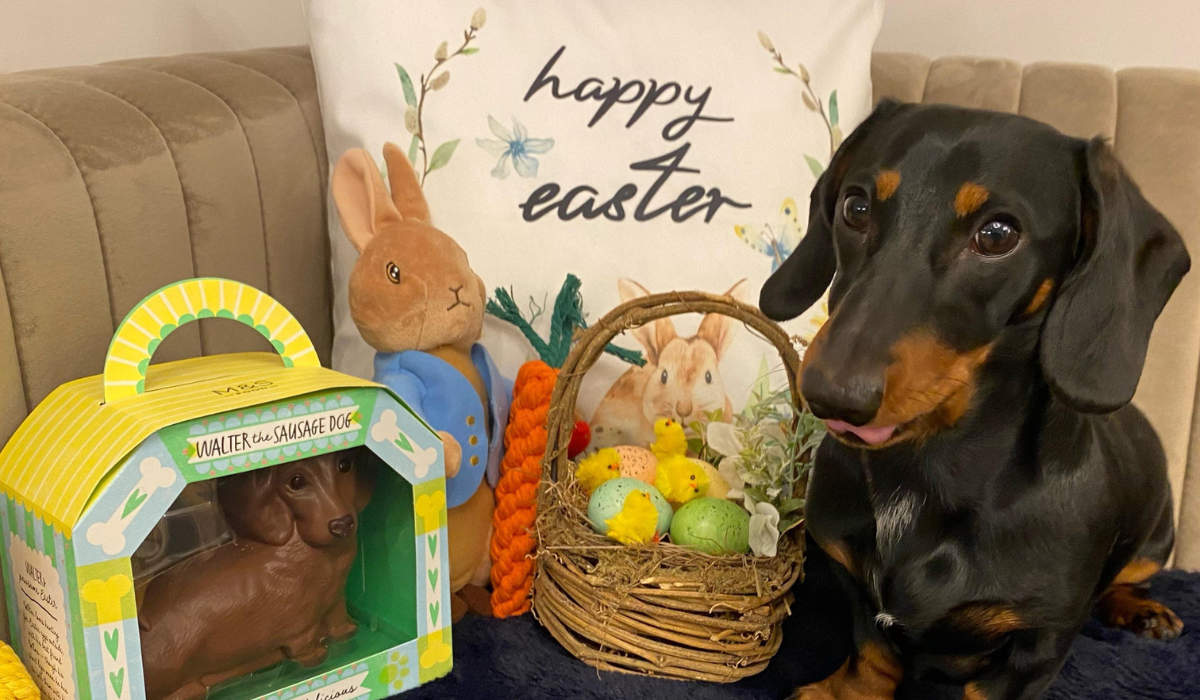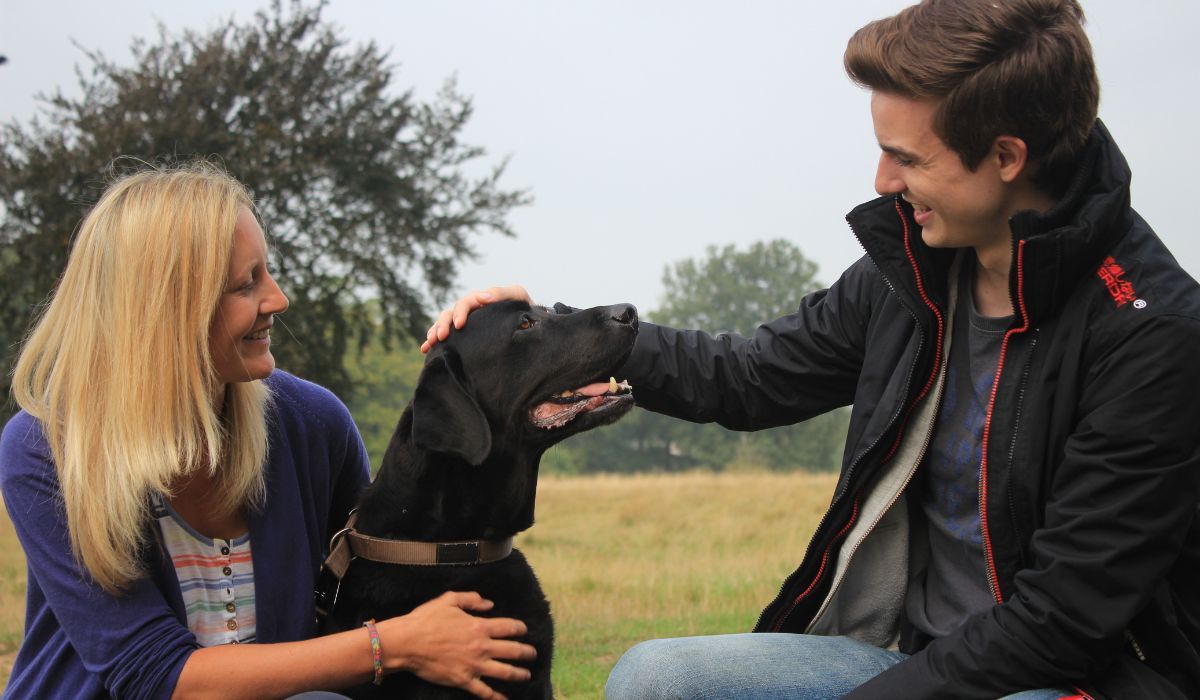
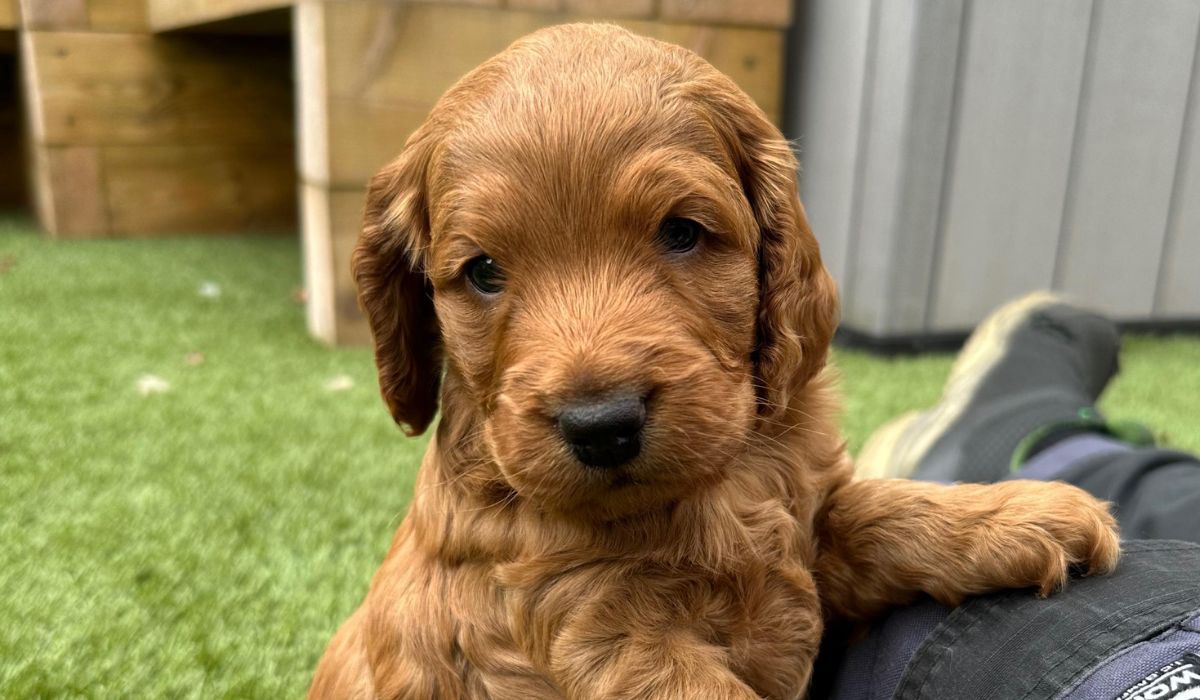
Caring for your new puppy
19 April 2023Adding a new puppy to your family can be a wonderful experience, but you’re not alone if you’re finding it a little daunting too. It’s not just a new adventure for your pup, even if you’ve had dogs before, you’ll be learning all about this new individual too. So here’s some top tips from the BorrowMyDoggy team and White Cross Vets on caring for your new puppy.
Cosy Beds
Find the right bed for your pup that allows them to snuggle down and be safe. Some people use puppy crates, which can help keep a pup out of mischief through the night and can often be a happy, ‘safe’ place for your puppy to go to if they are a bit overwhelmed. Crates should have a cosy bed inside them.
Getting your new puppy to sleep
The best place for your puppy's bed is a draught-free corner of the kitchen. Kitchens tend to be warm and to have washable floors. Remember the bed is your puppy's refuge, so keep young children away from it, and never allow a tired puppy to be dragged out of bed to play as your pet is not a toy!

On the first few nights in your home, expect your puppy to whimper. Before you go to bed, play with your puppy to induce sleep. After the first few nights, the pup should settle quite happily.
Puppies will often need toilet breaks through the night, so if they do cry a bit, be sure to let them do their toilets (with plenty of praise for doing it right!), then straight back to bed.
Your puppy needs to know that waking you up through the night will not result in attention, as giving any attention will be seen by the puppy as a reward and they can continue to make noise.
Once they have had their toilet needs met, they might cry a little longer, but you need to ignore them (as long as they are not hurt!) and let them whimper it out, and they will quickly get bored because it doesn’t make you come running!
It may be best to speak to your neighbours before bringing a new puppy home to make them aware that for the first few nights the puppy may howl, but this should resolve quickly.
Feeding Time
Always be sure to have the same food your puppy has been on as they have been eating with their breeder. You don’t have to be on this food long term if you want to use something different, but for the first few days don’t change your puppy’s food.
Puppies should be fed 3-4 times a day on a good quality puppy food. They don’t need milk or any supplements, good quality puppy food is all they need. If you want to change to another brand, be sure to do it very slowly, over about a week, so you’re adding a little bit more of the new food, and a little less of the old one, until you are 100% on the new food.
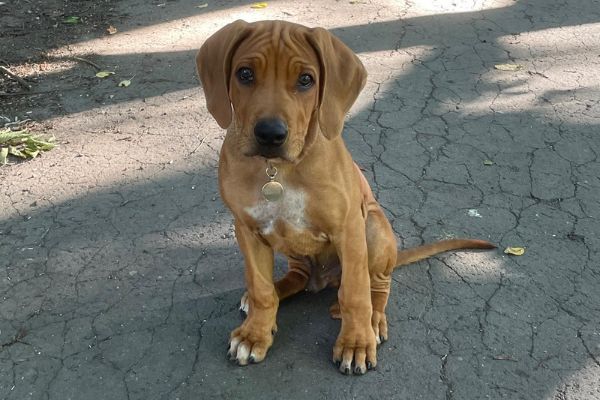
Puppies often eat really fast when they first arrive, because they’re used to competition from their puppy brothers and sisters. Sometimes, if you don’t have another dog, they will then slow down a bit when having their meals. Don’t worry about that, it’s normal, but try and limit mealtimes to 20 minutes, then lift the bowl. Put it back down in an hour or so and try again - it’s an important part of training your dog about eating at mealtimes.
Some people are happy with their dogs being able to graze on food all day, but sometimes it can make life a bit difficult if you’re going out, need to give your dog medication or want to watch their weight, if they are expecting to be fed all day, whenever they want.
Vaccinations
Unless properly vaccinated, your puppy runs the risk of contracting one of several possibly fatal infectious diseases. Canine parvovirus (parvo) and distemper probably represent the most widespread threat, but it is also necessary to protect against hepatitis and leptospirosis. Some Hepatitis vaccines can also protect against a virus implicated in the “Kennel Cough” syndrome. In addition, vaccines are also available to protect against Parainfluenza and Bordetella bronchiseptica, also involved in “Kennel Cough”.
Modern vaccines are products of extensive research and with such safe and effective vaccines readily available, it makes sense to protect your dog at the earliest opportunity.
Some pups will have had their first vaccination before you pick them up, so make sure you leave the breeders with a vaccination card with that information. Don’t worry if they haven’t had a vaccination yet. Either way contact your vet and get your pup booked in for either their second vaccination or the whole course, before you take them out on the pavements (unless they are being carried), parks or mixing with unvaccinated dogs.

Worming
Your pup should have already been wormed with their breeder, but check when they were last wormed. There are a few different protocols, and your vet can advise, but worming tends to be every 2 weeks when they are younger, then monthly as they get a bit older.
Training
Training a puppy starts straight away, but that doesn’t mean they need to learn ‘sit’ within 3 hours of arriving! Puppies need to learn everything from toilet training to whether or not they are allowed on the sofa. Working together and being consistent can really help your puppy to learn.
Learning to be a good dog
Socialisation is vital if your puppy is to grow up as a well-adjusted member of your family, so try to expose your puppy to as many new experiences as possible, travel by car and by bus, for example, or carry them round the block to get them used to the sounds of people and traffic. Your puppy needs to mix with other pets as soon as possible. Although it is unsafe to mix with strange dogs until fully vaccinated, your puppy can meet dogs you know are healthy and up to date with their vaccinations. Friends' and relatives' dogs are useful. Do not allow them to play rough games though, and allow the older dog to be left in peace if it does not wish to play. Do not leave your puppy unattended with a strange dog or child. Puppy classes can be a great way to socialise your pup, with many available throughout the country.
Your pup should ideally meet children at a young age, but make sure the children understand the ground rules first. Your puppy is not a toy. The children must learn not to tease or bully the pup, and the puppy must learn not to jump up or nip during play.
Read our guide on how to introduce your dog to children.
By joining BorrowMyDoggy, owners are able to gradually introduce their dog to a wide variety of people, children and pets so they can confidently make new friends. By being able to sniff out new experiences and places, BorrowMyDoggy dogs can also learn to be more comfortable and relaxed.
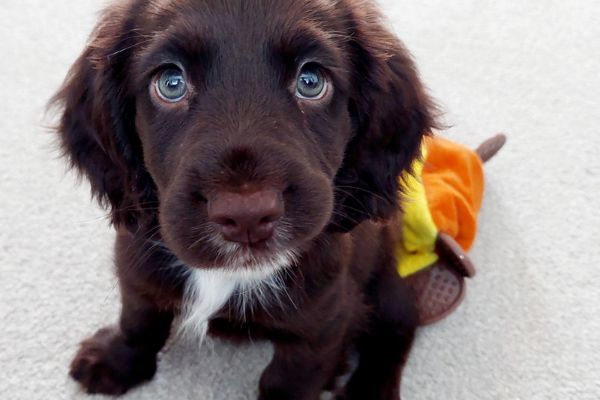
Taking your puppy home
Although some breeders already do give you pieces of blanket, if you’re not sure, ask them if you can place a blanket in the puppy's mother’s bed at their place, then, when you take the pup home, transfer this blanket to the puppy's new bed.
Your puppy will feel at home with this familiar scent.
How can I stop my puppy biting?
Chewing is a natural pastime for puppies, so do not discourage your pet, just ensure you let the puppy chew things you have chosen, rather than your shoes or fingers!
Good quality toys such as puppy Kongs are ideal.
If the puppy does chew something inappropriate, distract your pet by arranging for something interesting to happen elsewhere and then give something else to chew.
Your puppy might need to be taught to chew so, to do this, play with the chew in an enticing way until the puppy begins to chew.
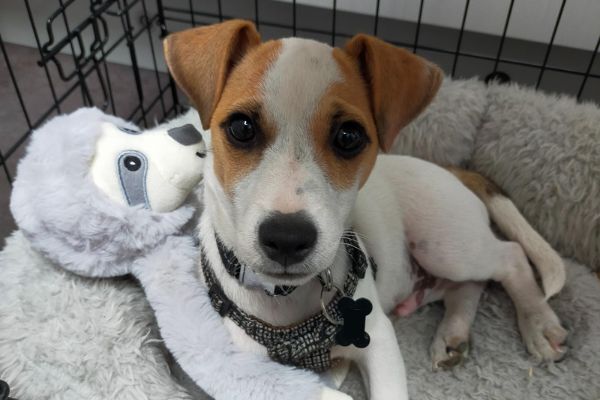
How do I toilet train my puppy?
Puppy toilet training can begin immediately. In the morning, take your puppy straight out to go to the toilet. When the pup performs, choose a word such as “busy busy”, and give lots of praise. In time, your puppy will learn to go to the toilet when you say “busy busy”. Do not be angry if your pup has toileted overnight, but do praise when there is no mess. Never scold a puppy for toileting in the wrong place or having an accident, this can make them too scared to go to the toilet anywhere, at any time, which only results in more accidents when they can’t hold it in anymore.
Always give lots of praise when your puppy goes in the right place and make sure you take your pup back there regularly throughout the day, especially after food and drink.
Other useful puppy guides
Everything you should know before getting a puppy
Where and how to buy a dog responsibly
To find your dog a loving dog sitter for extra walks, exercise and attention, sign up and begin messaging pawtential matches in your area.
Know someone who’d love this?
Hey there!
Want to hear about a different kind of dog care that both you and your dog will love?
Or perhaps you’re a dog lover who can’t have one of your own right now?
We have the pawfect solution, BorrowMyDoggy!

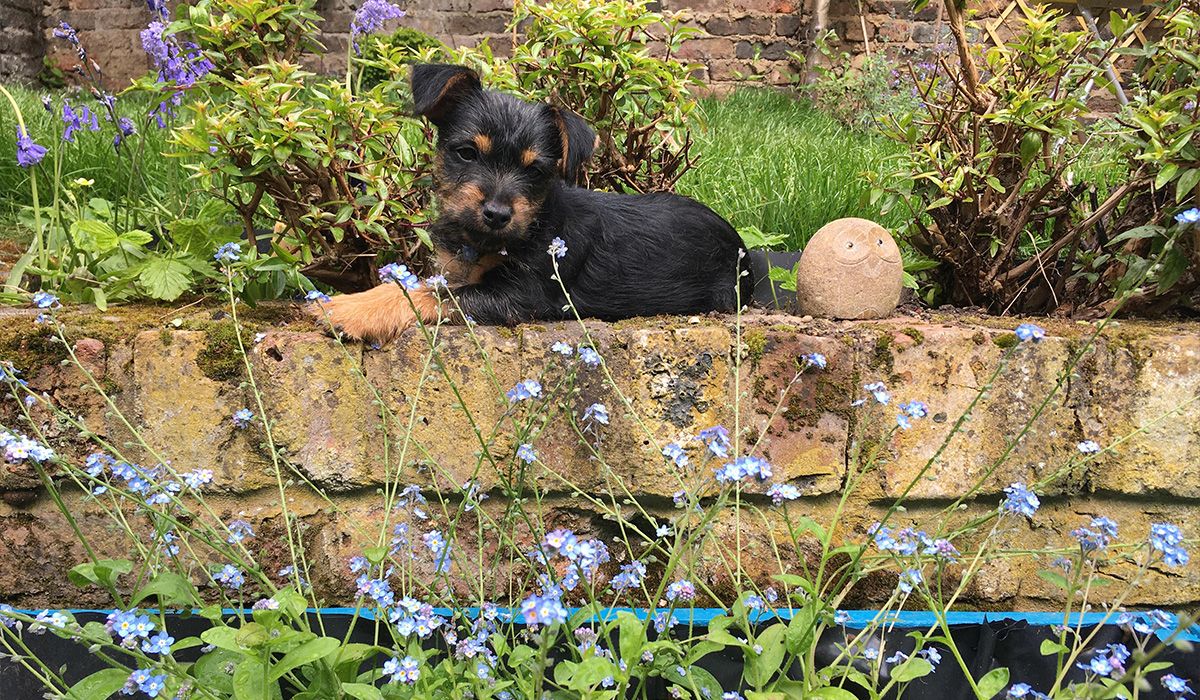
Dogs and Poisonous Plants
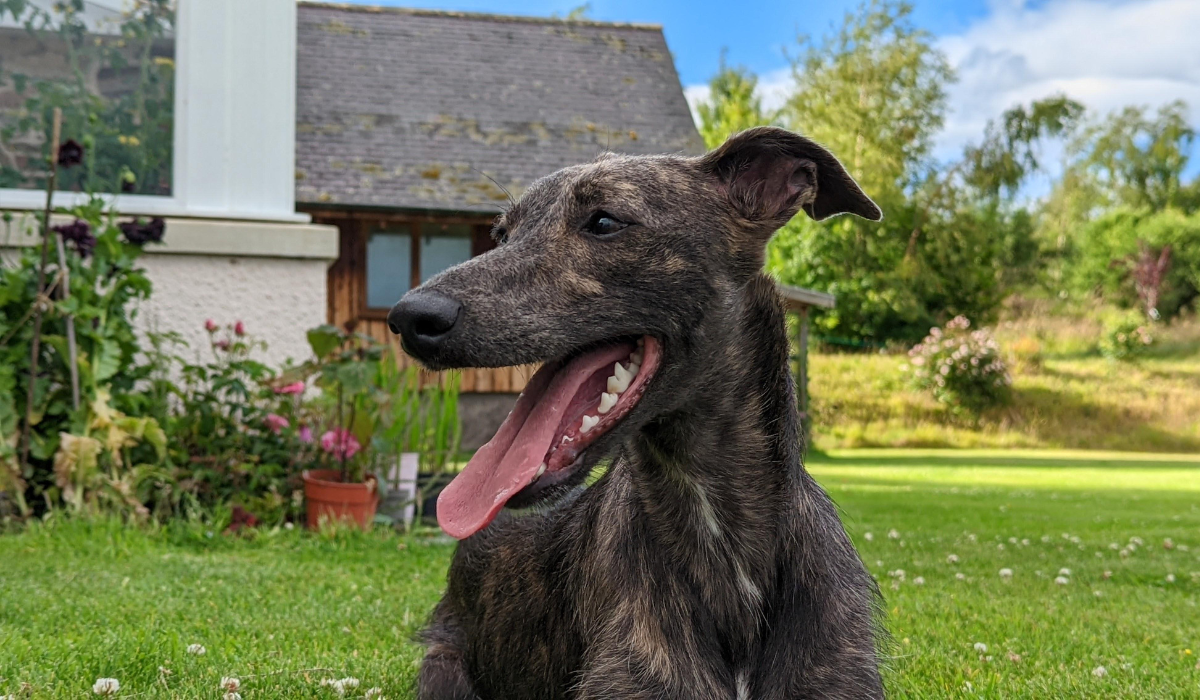
Top tips for a dog safe garden
